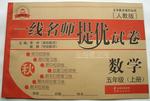题目内容
1. The traffic accident resulted to three deaths(cause)
由于酒后驾车引起的那场交通事故导致了三人死亡。
which was caused by drunk driving

练习册系列答案
 一线名师提优试卷系列答案
一线名师提优试卷系列答案
相关题目
题目内容
1. The traffic accident resulted to three deaths(cause)
由于酒后驾车引起的那场交通事故导致了三人死亡。
which was caused by drunk driving

 一线名师提优试卷系列答案
一线名师提优试卷系列答案